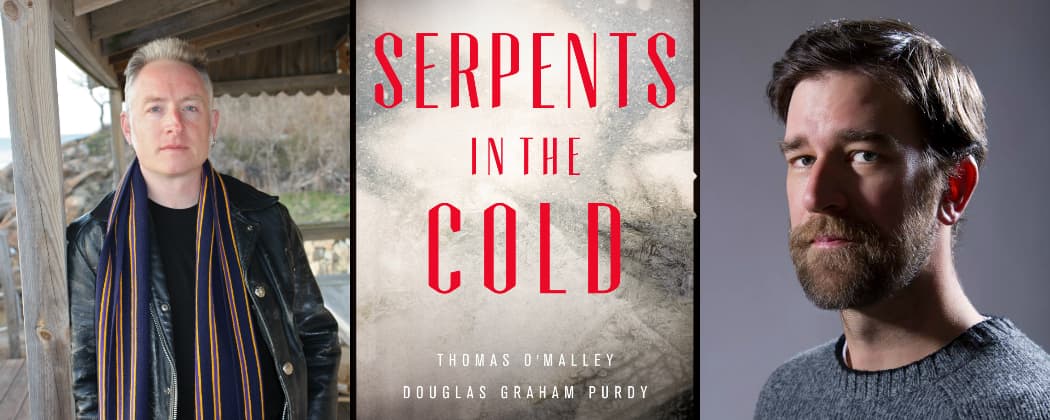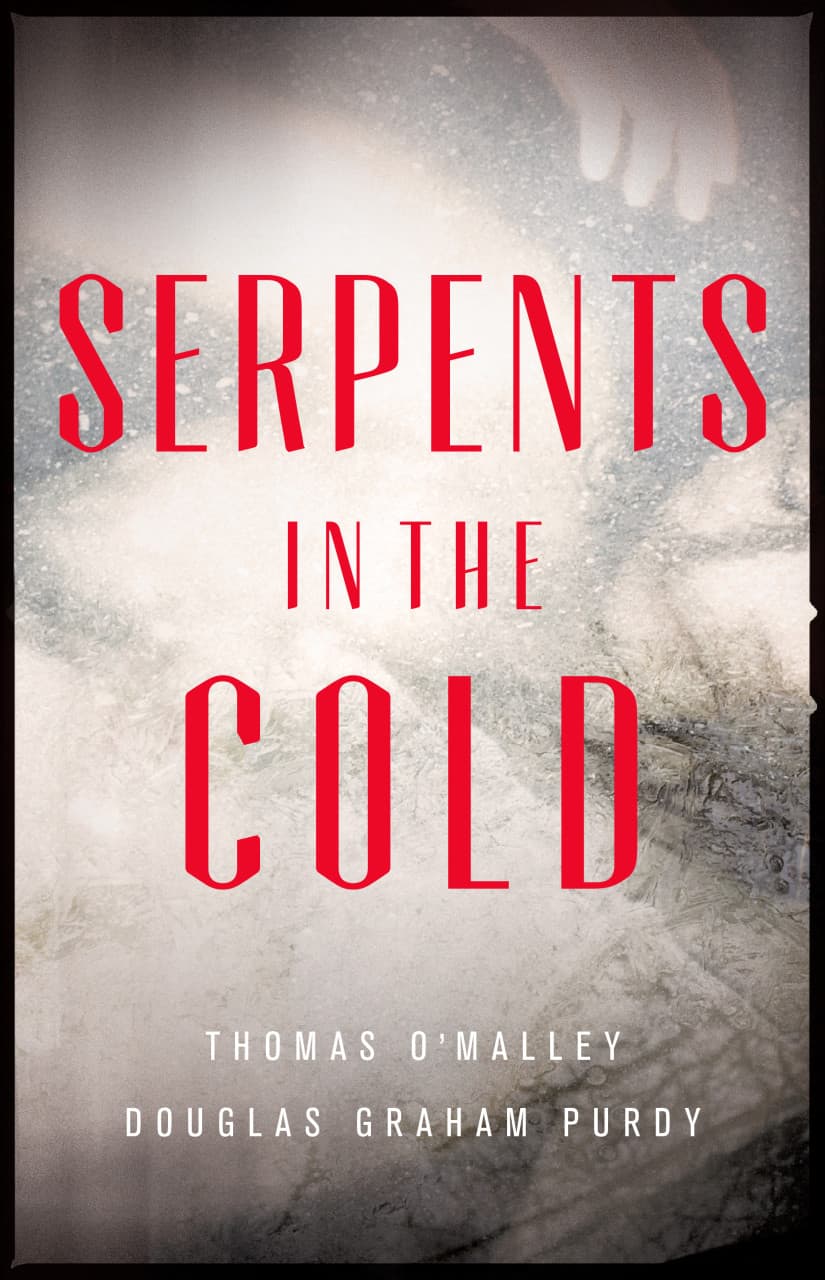Advertisement
'Serpents In The Cold': A Smoky Light On Lives In The Shadows

The 1950s seems a familiar decade, nestled in a buoyant post-war economy that expanded the middle class and generated an avid consumer society. But before the Princess phones, Eldorado tailfins and backyard Weber grills, there was a short, but sharp, recession. By 1951, Boston was still struggling.
This is the year, and this is the town, of “Serpents in the Cold,” a skinned-knuckle mystery by co-authors Thomas O’Malley and Douglas Graham Purdy. In the best noir tradition, these co-authors shine a smoky light on lives often lived in shadows; in this case, the inhabitants who lived in Scollay Square and the West End of Boston, before it all disappeared under the developers’ wrecking ball.
Cal O’Brien is a WWII vet, and in the winter of 1951, he’s also an ex-boxer and ex-cop, who keeps a flask handy to dull the constant pain of war injuries, both physical and psychic. He’s meeting the bills, barely, by running a private security agency for local businesses (and for folks “who didn’t trust the police or couldn’t call them”).
O’Malley, who grew up in Ireland and England, and Purdy, who grew up in Boston, write credibly about the magnetic pull of neighborhood ties. For a book that is co-authored, they write together with one authentic voice. They are also terrific at highlighting evocative details of 1951 daily life. There’s the ping of an apartment radiator, the crunch of tire chains on icy roads, a switchboard operator at the other end of a pay phone nickel and “the hiss of nylon against nylon” as a secretary crosses her legs.
Cal also looks out for his boyhood friend, Dante Cooper, who was a talented jazz pianist until he got his own injuries, these in a local incident. Dante’s now a junkie, who rouses himself to occasional work only to feed his habit. Being high is the only time he’s freed from the anguish of his lost career and the death of his beloved wife, Margo.

Life has kicked each of the friends pretty hard, and it’s not done with them yet. There’s a serial killer loose in Boston, dubbed “the Butcher” by the local papers, who’s been grabbing women off the streets and sadistically slaughtering them. One of the women turns out to be Dante’s sister-in-law, Sheila. The police quickly move on to the next victim, but there are particulars about her murder that just don’t add up for Cal and Dante. They decide to investigate on their own.
In their early 30s, they are still tough men, but they’re not wise-cracking hardboiled detectives. The co-authors have endowed these friends with distinct personalities. Dante first wallows in and then strives to break loose from his singular sorrows. Cal has seen too much of the world, and is haunted by “places he’d seen where God had been absent.” Their dialogue carries a believable blend of cynicism and benevolence.
To unearth more clues, Cal uses back channels with some of his old cop buddies, and Dante noses about the bars and clubs where Sheila used to spend time. Their search takes them to Central Square, Cambridge, (where the “faint odors of…burnt fudge carried a half mile from the Necco candy factory”), to Mission Hill, Roxbury, to landmarks like Locke-Ober and the old Boston Garden. In the Boston of “Serpents in the Cold,” even storied establishments have a sour underside; the elegant Parker House is “where politicians from the State House drank after hours, made underhanded deals, and met their mistresses.”
Boston is as much a character here as any human. Not just in the well-described streets, but in the way O’Malley and Purdy let the landscape speak. Consider the gorgeous loneliness of this sentence:
“There was only one other passenger on the trolley, sleeping fitfully, and the driver didn’t even bother to turn on the interior light, so they passed through the city in darkness, the trolley’s bell clanging vacantly at empty intersections, and he stared from the window and watched the snow coming down.”
1951 is a hard winter, and the wind, always present, is as malignant a force as any lurking mugger. It pushes against car doors, it rattles chain link fences, it sends people stumbling.
Cal and Dante also have fierce run-ins with the enforcer Blackie Foley and his crew. Dante, who frequently owes money, often pays in fractured ribs or a broken nose. Cal and Blackie circle each other warily with long-trailing hostilities.
Blackie is the younger brother of their one-time Dorchester pal Michael Foley, a congressman who’s now making a run for the U.S. Senate. Acknowledging only the more pristine of his roots, Congressman Foley gives speeches on how he’ll rejuvenate Boston with new developments, clear away the criminal elements and stop the flight to the suburbs. He talks a smooth game, with a heart as cold and damp as the February streets.
But something beyond crime is disturbing the city’s atmosphere. The view from Cal’s Scollay Square office seems to be changing by the day: there are more vacant lots, where before you could barely see the sky beyond the bars and tenements and offices. How could so many West End buildings be sold or condemned so quickly? How could so many people be displaced? Cal and Dante follow an ever-widening trail that leads from real estate developers to City Hall to the State House, going on their experience that “everything in Boston connected in some way to everything else.”
A noir novel can be the high, slippery tightrope of mysteries. It’s difficult to sustain a dark, moody balance; many writers slide right off into caricature. But O’Malley and Purdy let in just enough daylight – even if it’s harsh winter light – to hold out hope of redemption.
“Serpents in the Cold” is noted as the first in “The Boston Saga.” If there’s a second, I’d gladly revisit the town.
Here's an excerpt from "Serpents in the Cold":